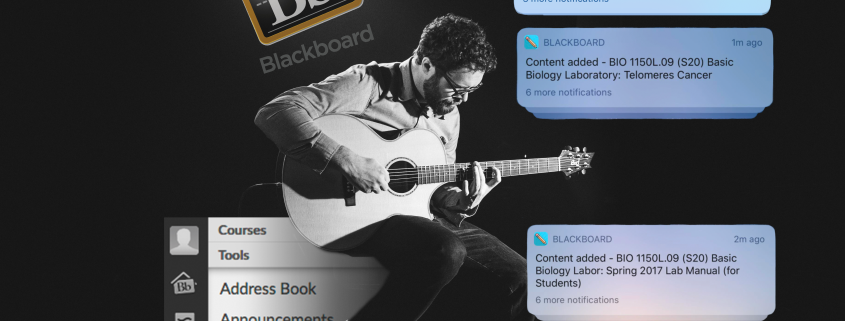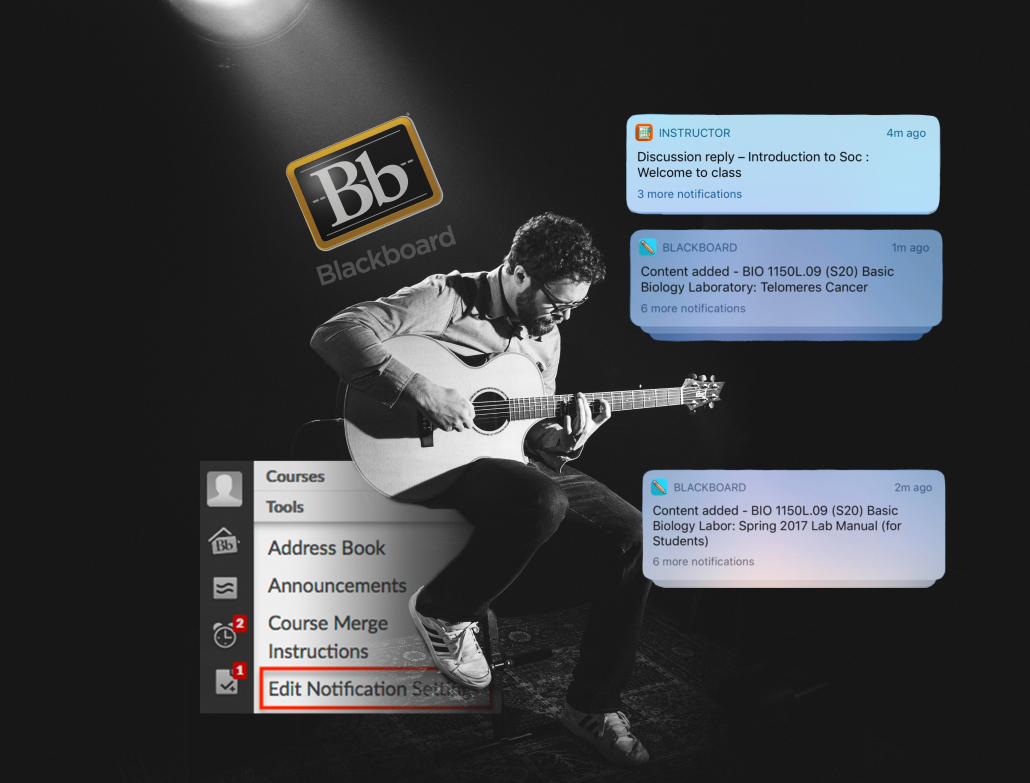Students must adopt resilience when using Blackboard
Over the past several decades, learning management systems such as Blackboard and Canvas have redefined the teaching framework in colleges across the country. The days when students would turn in assignments by hand at the beginning of each class are gone. Instead, these platforms organize assignments, announcements and tasks for digital access at any time.
In theory, learning management systems are a great idea. By expanding the classroom’s reach to a digital environment, there is not only greater connectivity between students and professors, but also convenience in facets such as access to course materials.
These benefits, however, do not come without drawbacks. If these systems are mishandled, it only takes a few steps for connectivity to become intrusion and for convenience to become a burden.
Imagine a class taught on Tuesdays and Thursdays at noon. Without services such as Blackboard or Canvas, professors will naturally expect students to submit assignments at noon before the beginning of class. With these systems in place, however, professors have begun to impose deadlines at times such as 5 p.m., 9 p.m. or even 11:59 p.m.
The argument here is that these “extensions” are by no means generous. Short deadline extensions are not only unhelpful to students making edits to their work but also extend the school day into one’s personal time. In other words, they give a false sense of security that inevitably results in unhealthier study habits.
This extension of the school day is also confusing for many students. Several studies show that an appropriate work-life balance increases productivity, reduces stress and promotes higher quality work. Learning management systems, on the other hand, serve the opposite purpose. By forcing students to constantly be on-call for the next assignment or announcement, they merge work and home spaces, causing unnecessary stress to students.
Although homework is crucial to classwork success, with several professors prefacing their syllabi with statements such as, “For every hour of lecture, you should study for ‘x’ number of hours,” the line between class time and personal time should still remain separate. When these systems continue to make this balance even more ambiguous, students’ mental health and well-being suffer.
Robert Brooks, professor of psychology at Harvard Medical School and co-author of “The Power of Resilience: Achieving Balance, Confidence and Personal Strength in Your Life” notes the importance of “unplugging” in our daily lives. According to Brooks, by experiencing quality time to its fullest and ignoring the work alerts and phone notifications, one will begin to develop a sense of resilience. Brooks goes on to note that those who are resilient are often in greater control of their lives and can better deal with adverse conditions, such as stress, effectively.
While it may be difficult to unplug completely from responsibilities, students can adopt a resilient mindset. By making active efforts to separate work and study spaces, both physically and mentally, students can begin to reclaim control over their education. In this way, students will directly play a part in the division and organization of their work, subsequently falling away from “reactionary” mechanisms to systems such as Blackboard or Canvas.
Professors can also aid in this endeavor. In the midst of a pandemic, it is more important than ever for professors to pay extra care to their students’ personal lives. By assigning more reasonable deadlines and paying extra caution to their announcements or assignments’ repercussions on students, professors can enable students greater charge over their lives.


